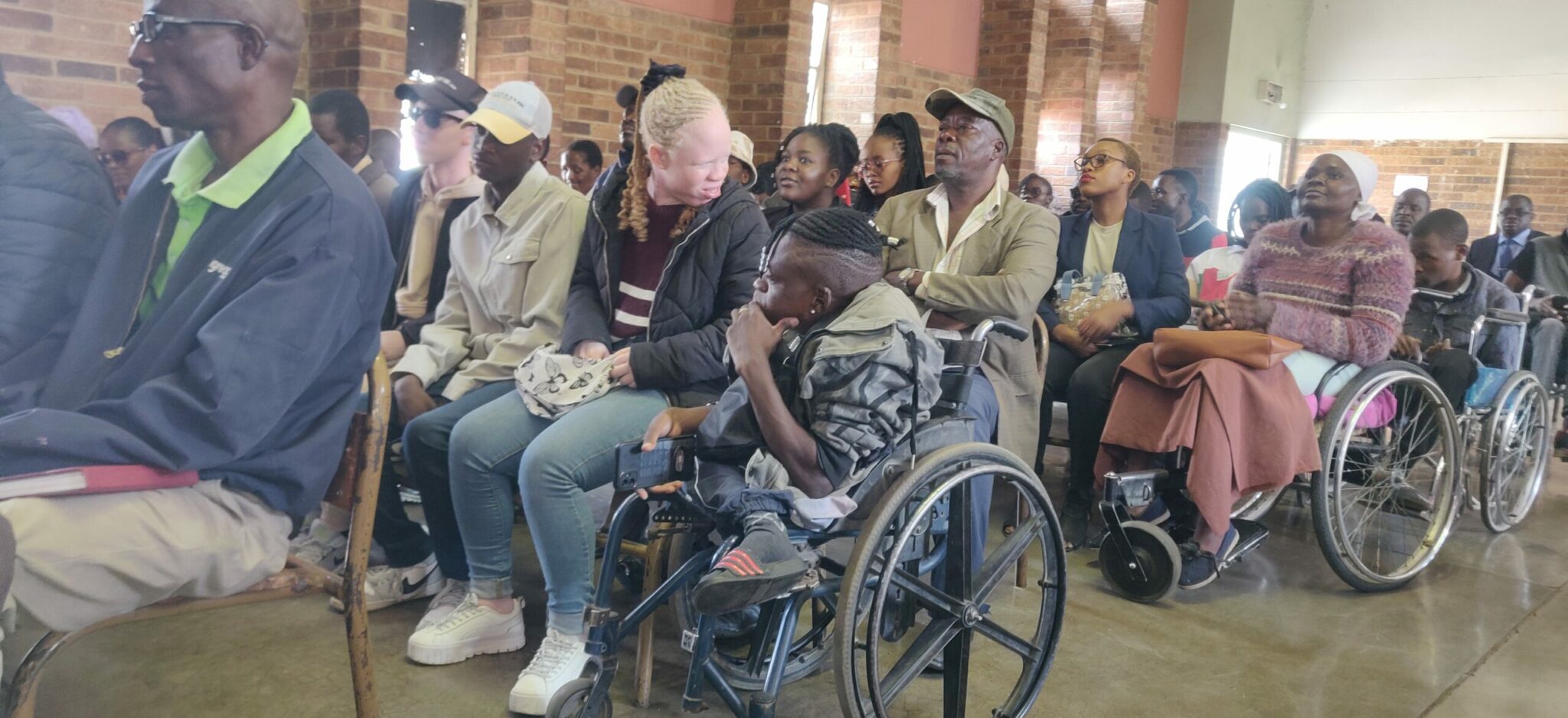People with disabilities (PWDs) came out in force to express their views on the Persons with Disability Bill (H.B.2, 2023) at a public hearing held in Bulawayo.
They advocated for greater inclusion in the proposed commission, a disability fund, enhanced political participation, and other key measures.
The bill aims to replace the outdated Disabled Persons Act and align it with the Constitution and a human rights approach. One point of contention was the proposed commission.
Speaking during the public hearing on Tuesday at Lobengula Hall, Ntandonyenkosi Mkandla from Albinism Dare To Dream Initiative proposed that the commission should include the youths.
“This Commission will include women and six people with disability, which means the youths are not included but we are the majority. In as much as we don’t have the qualifications that the old people have we should also be part of the commission,” said Mkandla.
Tsepang Nare representing NASCOH and Southern African Parliamentary Support Trust said the commission needs to create an avenue for persons with disabilities to submit their grievances.
“Under clause 5, it talks about the functions of the Commission, the first function is to advise the Minister, which already places the Commission as an executive or advisory commission that limits the power of the commission as it is supposed to ensure that all government ministries, agencies and parastatals promote and advance disability rights, so the function of the commission should be to have oversight and be able to take decisions.
“Again we realise that there is no function around the grievance procedure, it’s difficult for persons with disabilities to take their issues to court whenever their rights have been violated, so the commission should create an avenue for persons with disabilities to submit their grievances,” he said.
Regarding the appointment of the CEO outlined in clause 7, Nare advocated for prioritisation of individuals with a disability, “we are saying the position of the CEO should be reserved for persons with a disability first and not parents of persons with disabilities because UNCRPD places parents as playing a supportive role.”
He also called for the criminalisation of discrimination against persons with disability in Zimbabwe.
A representative from the Council of the Blind, Khiwa Moyo lamented the challenges faced in accessing assistive devices in Zimbabwe.
“Assistive devices are hard to access in Zimbabwe and as people with disabilities, we are supposed to buy on our own. I wish the government could acquire assistive devices for us because they are expensive, wheelchairs, sunscreens, and crutches, all this is expensive. I wish the government can also lift the duty when these are purchased outside the country, we want this bill to consider and assist us on assistive devices because these are the things that we use,” said Moyo.
He said in the Bill, the government should also allow persons with disabilities to import vehicles duty-free.
“The government should also allow us to import any cars we want and be duty-free not to have a specific year. We want health to be free for disabled people, even their children,” said Moyo.
Irene Moyo from the National Council of Disabled proposed transforming the assistance fund into a disability grant to empower PWDs.
Moyo also lobbied for a stand-alone disability ministry to look into issues affecting them.
In addition, Ivy Sunday said the President needs to appoint disability ministers as the political environment is not conducive for them.
“As we speak now, we only have two senators representing persons with disability, we have many issues and persons with disability need to be represented fully, two people only are not enough. And also because of the political environment, usually there is violence, many persons with disabilities don’t participate fully in politics,” said Sunday.

